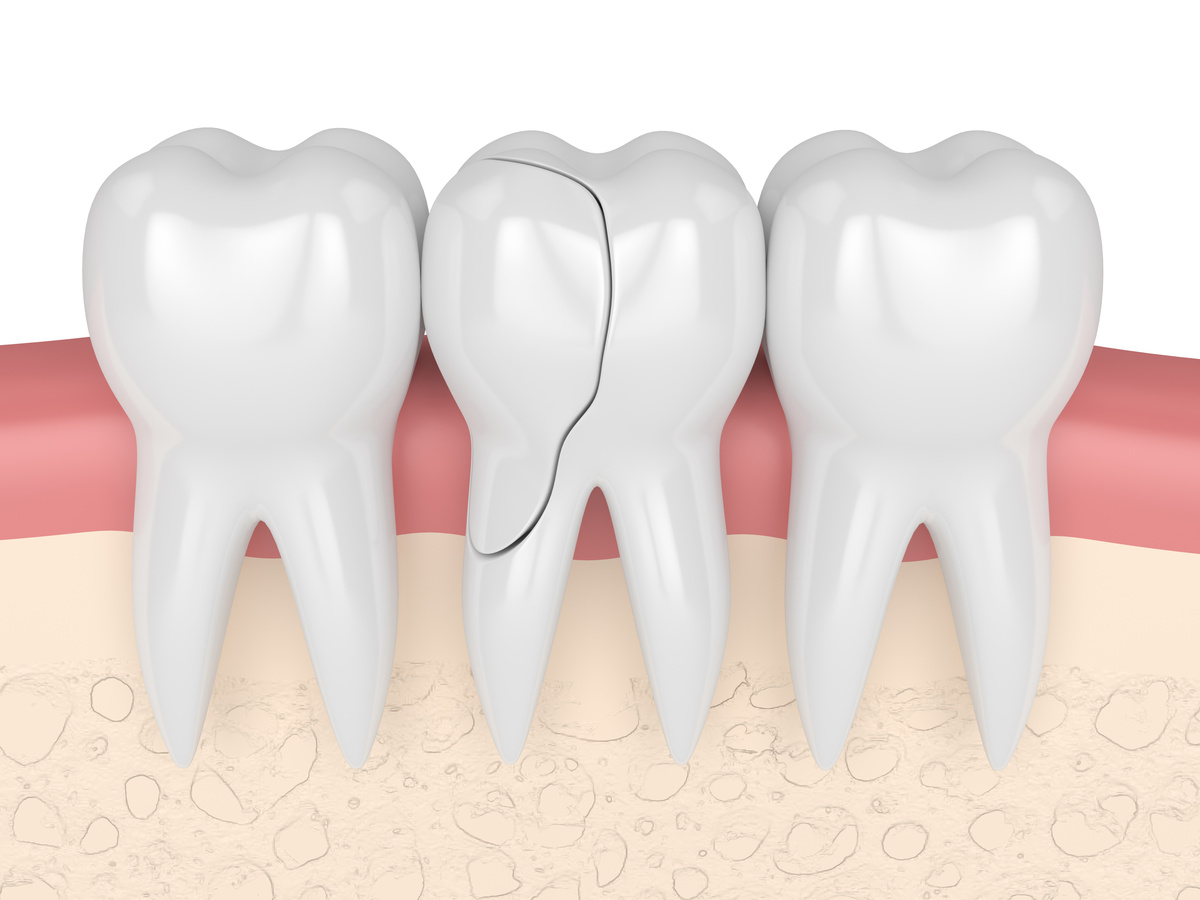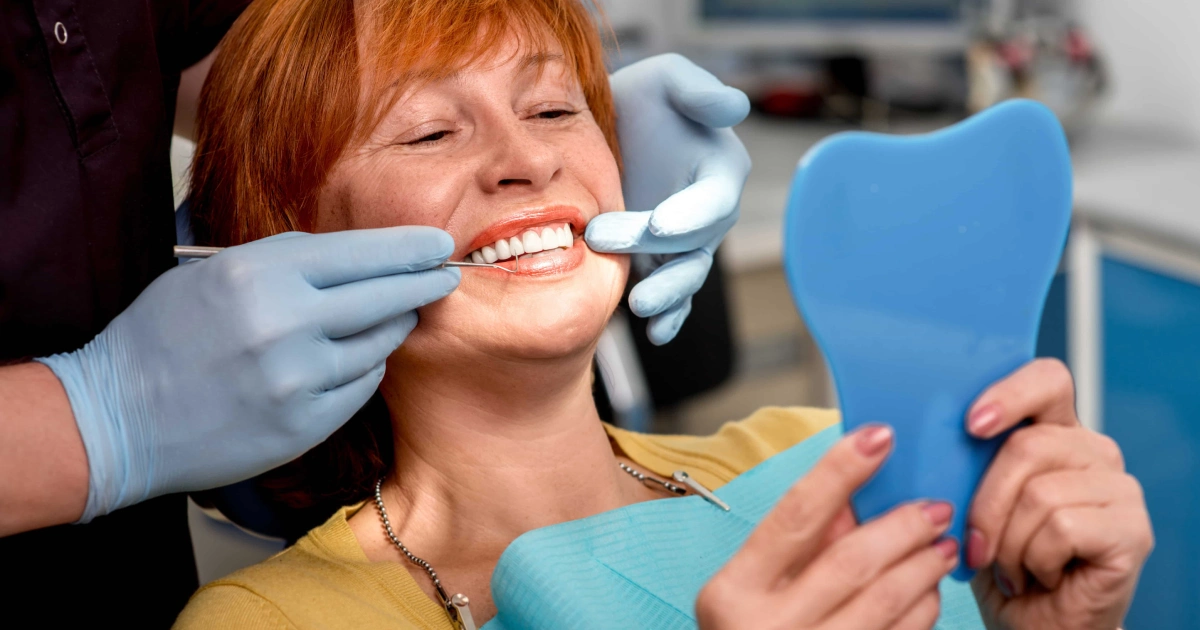Introduction
Root canal treatment is a dental procedure that often gets a bad reputation, but it’s a valuable solution for various dental issues, including cracked teeth. Cracked teeth can be painful and concerning, affecting oral health and well-being. This blog will delve into the effectiveness of root canal treatment for cracked teeth. Whether experiencing a cracked tooth or simply curious about this common dental procedure, read on to discover the facts and dispel any myths.
What Causes Cracked Teeth?
Understanding the causes of cracked teeth is the first step in assessing whether root canal treatment is a suitable option. Cracks in teeth can result from several factors, including:
- Biting Hard Objects: Chewing on ice, hard candies, or using your teeth to open packaging can cause teeth to crack.
- Teeth Grinding (Bruxism): Habitual teeth grinding, especially at night, can lead to fractures over time.
- Trauma: Accidents, falls, or any impact on the mouth can cause teeth to crack.
- Large Fillings: Teeth with extensive fillings are more vulnerable to cracking.
- Temperature Changes: Rapid temperature fluctuations, such as drinking hot coffee followed by ice-cold water, can stress teeth and lead to cracks.
- Aging: As we age, teeth can become more brittle and prone to cracking.
The Symptoms of Cracked Teeth
Recognizing the signs and symptoms of cracked teeth is essential for timely diagnosis and treatment. Common indications of a cracked tooth include:
- Pain: You may experience intermittent or persistent pain when biting, chewing, or applying pressure to the tooth.
- Sensitivity: Increased sensitivity to hot or cold temperatures, especially when consuming hot or cold foods and beverages.
- Pain while Chewing: Discomfort or pain when you bite down on the affected tooth or release the pressure.
- Swollen Gums: In some cases, cracked teeth can cause gum inflammation or localized swelling.
- Visible Crack Lines: A visible crack line or fracture may be observed on the tooth’s surface.
If you notice any of these symptoms, it’s crucial to consult a dentist for a thorough examination. Ignoring a cracked tooth can lead to more significant issues down the line.
The Root Canal Treatment Process
Root canal treatment, also known as endodontic therapy, involves the removal of damaged or infected pulp from the inside of the tooth and sealing the tooth to prevent further infection. The procedure typically involves the following steps:
- X-ray: To assess the extent of the damage, the dentist takes an X-ray to determine the shape and length of the root canals.
- Anesthesia: Local anesthesia is administered to numb the area surrounding the affected tooth. This ensures you won’t feel pain during the procedure.
- Isolation: A rubber dam surrounds the tooth to keep it dry and saliva-free.
- Access Opening: The dentist creates a small access opening in the tooth’s crown to access the pulp chamber.
- Cleaning and Shaping: The damaged or infected pulp is carefully removed, and the root canals are cleaned, shaped, and disinfected to prevent further infection.
- Filling: Once the canals are thoroughly cleaned and disinfected, they are filled with a biocompatible material called gutta-percha, and the access opening is sealed with a temporary or permanent filling.
- Restoration: In most cases, a tooth that has undergone a root canal will require a dental crown to protect and restore its strength and function.
The primary goal of root canal treatment is to save the natural tooth and alleviate pain while preventing further complications.
Does Root Canal Treatment Work for Cracked Teeth?
Root canal treatment is highly effective for cracked teeth, and it offers numerous benefits:
- Pain Relief: Root canal treatment is often the best option for relieving the intense pain of cracked teeth. By removing the damaged pulp and sealing the tooth, the procedure can alleviate discomfort.
- Preservation of the Natural Tooth: One of the most significant advantages of root canal treatment is that it allows you to keep your natural tooth. This is essential for maintaining proper oral function and appearance.
- Prevention of Infection: Cracked teeth can lead to infections. Root canal therapy not only removes the infected tissue but also seals the tooth, preventing further infection.
- Restoration of Tooth Function: After a root canal, a dental crown is typically placed on the treated tooth. This restores its strength and function, allowing you to bite, chew, and speak comfortably.
- Long-Term Success: When performed by a skilled dentist and properly maintained, root canal-treated teeth can last a lifetime. It’s a durable solution for cracked teeth.
- Improved Appearance: With a dental crown, the treated tooth can look and function like a natural tooth, enhancing your smile.
Alternatives to Root Canal Treatment
While root canal treatment is highly effective, there may be cases where alternative options are considered, such as:
- Extraction: In severe cases where the tooth is extensively damaged and cannot be saved, extraction may be necessary. However, losing a natural tooth can lead to long-term dental issues and aesthetic concerns.
- Dental Crowns: Dental crowns can cover and protect cracked teeth. This is often done as a preventive measure before the tooth sustains further damage.
- Inlays and Onlays: These are conservative restorations that can be considered when a tooth is not severely damaged. They can help reinforce the tooth’s structure.
Your dentist will assess your case to determine the most appropriate treatment plan.
Aftercare and Recovery
After a root canal procedure, it’s crucial to follow the dentist’s aftercare instructions to ensure a smooth recovery:
- Pain Management: You may experience mild discomfort after the procedure. Over-the-counter pain relievers can help manage this. Your dentist may prescribe pain medication in some cases.
- Oral Hygiene: Maintain good oral hygiene by brushing and flossing regularly. Proper care helps prevent further issues.
- Diet: Avoid hard or crunchy foods immediately after the procedure. Stick to a soft diet to prevent additional stress on the treated tooth.
- Follow-Up Appointments: Attend any follow-up appointments scheduled by your dentist to monitor your progress.
- Dental Crown: If a dental crown is placed, be mindful of any special care instructions provided by your dentist.
Importance of Seeking Professional Dental Care
Cracked teeth and root canal treatment are complex dental issues that require the expertise of a qualified dentist. Seeking professional dental care is essential for several reasons:
- Accurate Diagnosis: Dentists can accurately diagnose the extent of tooth damage and recommend the most appropriate treatment.
- Pain Management: Dentists can relieve pain and alleviate discomfort associated with cracked teeth.
- Prevention of Complications: Timely intervention by a dentist can prevent infections and further complications.
- Preservation of Natural Teeth: Dentists aim to preserve natural teeth whenever possible, helping maintain oral function and appearance.
- Skill and Experience: Dentists have the knowledge, skill, and experience to perform root canal treatments safely and effectively.
- Patient Education: Dentists can educate patients about oral health, including preventive measures to avoid cracked teeth.
Conclusion
Root canal treatment is a highly effective solution for cracked teeth. It offers pain relief, preserves natural teeth, prevents infections, and restores tooth function. Real-life case studies and patient testimonials underscore its success in enhancing the lives of individuals with cracked teeth.
If you experience the symptoms of a cracked tooth, don’t delay seeking professional dental care. The sooner the issue is addressed, the better the chances of successful treatment and recovery. Smiles Of Chandler provides expert dental care and guidance to ensure your oral health remains in top shape. Contact us for a consultation and experience the benefits of root canal treatment firsthand. Don’t let a cracked tooth hold you from a healthy, beautiful smile.







